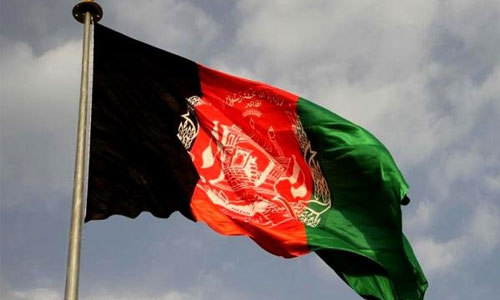Last forty-five years of war in Afghanistan have had numerous negative implications on the people of this country, affecting all strata of Afghan society and substantially damaging human capital at all demographic levels, depriving the whole nation to access standard health care, education and a viable living environment. This scourge continued to take vast toll on three consecutive generations of Afghan nationals – whether they lived inside the country or migrated and settled in other countries – effects of war continued to haunt them persistently – and has caused considerable damages to psychological health of the entire nation. These issues continued to aggravate in the absence of an effective central authority in the country, which allowed for the very fabric of Afghan society to fall apart and as under in the most vulgar manner, inflicting debilitating consequences on the entire nation. In the absence of cohesion and viable family environment, circumstances gave way to foreign interferences to pursue their vested interests by using Afghan youths under various ideologies to serve these aliens’ interests in the country. Though a semblance of central Government / authority has been in place after the US and allies toppled Taliban regime in November 2001 and a large number of US and NATO forces poured into Afghanistan for the sole purpose to get the country rid of warring factions, chase terrorist groups including Al-Qaeda, and assist the people of Afghanistan to build a viable nation and rebuild this war-turn country; but war continues to take toll on Afghans despite unprecedented international intervention in the country to help stop this fratricidal war!
Governments inherently provide leveled playing fields for the nation to embark on achieving important national objectives. Academia is the driving force behind instilling renewed sense of purpose in the mind-set of young generation of a nation. The maverick force in every nation is the youths and young people who push boundaries and take things to new heights. Despite continuation of grinding war in the country, last seventeen years have provided comparably and relatively calm and organized living conditions in Afghanistan. Millions of Afghans – girls and boys – go to schools, universities and other training institutions. A semblance of democratic culture is taking shape as Afghanistan has successfully left behind four major general Presidential and Parliamentary elections during last one and half decade. Access to internet, social media and online services has contributed to enrich knowledge, technological know-how and connectivity around the globe of the people – especially young people – of Afghanistan. But the damages inflicted during last forty-five years of war on our people will continue to haunt us, and will not go away soon. Therefore, it is the responsibility of Afghan Government, academia and youths of the country to focus on this problem and take drastic steps toward building a strong and unified nation.
The very first step to take on this path is for our people and Government to identify the problem by laying out comprehensive landscape of ongoing threats, opportunities, weaknesses and strengths. Afghanistan is passing through a critical juncture in her history, and the country is still at war with international terrorism. The enemy is attacking this nation both, in battle grounds in the fields, and in an organized manner on high density population centers in cities and districts by using soft weapons such as ethnicity, religion, linguistic, clan and tribal lines. The later is the most dangerous weapon to destabilize the country in the long run. It destroys the social fabric of the country. In fact, this tactic was used during last forty years of fratricidal war to divide diverse set of people against each other, who had lived in peace and harmony for thousands of years. The wars in the frontline can be managed, and are for short span of time. It is extremely important to halt and put a full stop to manipulations by enemy of our people on ethnic, linguistic, religion, clan and tribal lines.
Afghans should work for a better, common shared future. People of Afghanistan have many shared values to rally around, including cultural, religious, geographical, economy and a shared national identity, which they share across the country. Example of nations who have built a shared future for themselves and ever since live happily and prosperously is the formation of European Union (EU). Countries of this block have rallied around one common interest that is economic, and the whole world watched in astonishment advances that countries in EU block have made. In the region, India also rallied around its shared common values albeit having vast cultural, religious, linguistic, regional and economic differences. There is no future for solitary advancement of interests, and pushing others to the edge of backwardness or denying them opportunities they deserve. In the absence of this, eruption of conflict and destructive wars will ensue. History has proven this times and again. Therefore, it is incumbent on the Government, academia, the people – especially the educated and youths – of Afghanistan to spread awareness by undertaking large scale educational programs, adopting culture of tolerance and mutual respect, and providing equal opportunities to people of all ethnic backgrounds, all religious affiliations and across linguistic identification so that they get the sense of inclusiveness and belonging. Delivery of good governance, equal opportunity and inclusiveness are main vehicles whereby building a shared future for the people of Afghanistan can be achieved.
Home » Opinion » Afghan Government, Academia & Youths Should Rally Afghans – Across Ethnic & Linguistic Lines – Around Building a Shared Future
Afghan Government, Academia & Youths Should Rally Afghans – Across Ethnic & Linguistic Lines – Around Building a Shared Future
| Mohammed Gul Sahibbzada

